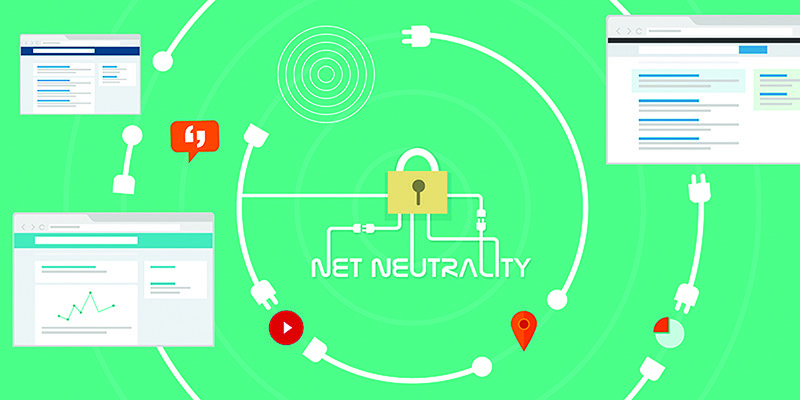
Net neutrality is making headlines again—and that could affect your marketing practices. So what exactly is net neutrality, what’s likely in store for it, and what does this mean for you?
According to the FCC, an Open Internet—or Net Neutrality—simply means consumers can go where they want, when they want. And in late February 2015, the FCC adopted the rules to protect free expression and innovation on the Internet and promote investment in the nation’s broadband networks. As the FCC explains, the “rules protect and maintain open, uninhibited access to legal online content without broadband Internet access providers being allowed to block, impair, or establish fast/slow lanes” to that content. Those rules took effect on June 12, 2015.
But now FCC Chairman Ajit Pai—who penned a 67-page dissenting statement (http://bit.ly/2nHYcQu) on net neutrality when he served as an FCC commissioner during the Obama Administration—has signaled his interest in scaling back those regulations. “We need to fire up the weed wacker and remove those rules that are holding back investment, innovation, and job creation,” Pai said in a speech earlier this year. Reports indicate that Pai has not said if the FCC will repeal the rules or if it will wait for Republicans in Congress to draft a replacement law.
Impacts of a Scale Back
If net neutrality is scaled back, there are implications that can affect the way you do business. As Sergey Denisenko wrote recently in TechCrunch, eliminating regulations means that Internet Service Providers (ISPs) can keep charging customers for Internet access, while at the same time charging institutions for prioritized access to those consumers.
“This means any organizations without deep enough pockets to pay an ISP’s ransom will load much slower than those with ties to ISPs,” he wrote. And because consumers expect websites to move at optimal speeds and stream data without interruption, the sites that don’t will have a tough time maintaining—or growing—their audiences.
“This is where we start to see a domino effect,” he adds. “If a business can’t afford to pay an ISP for premium service, it loses its online audience, it then loses its advertisers and can no longer afford to produce content.”
That’s why it’s important to keep this in mind as you develop your digital strategies, so you can consider other ways to reach these audiences. And for now, perhaps the most important thing you can do is stay on top of this issue. Be on the watch for news on this topic from the FCC and Capitol Hill. Read the tech blogs and news from publications such as TechCrunch and Wired. This issue is not going away in the next four years. And if you are well informed about net neutrality as you develop your marketing strategies, you will be nimble to handle whatever comes your way—and reach your customers as you always have.






